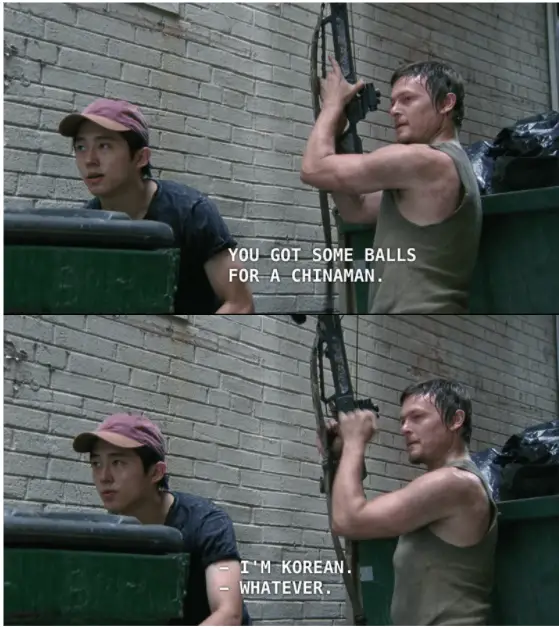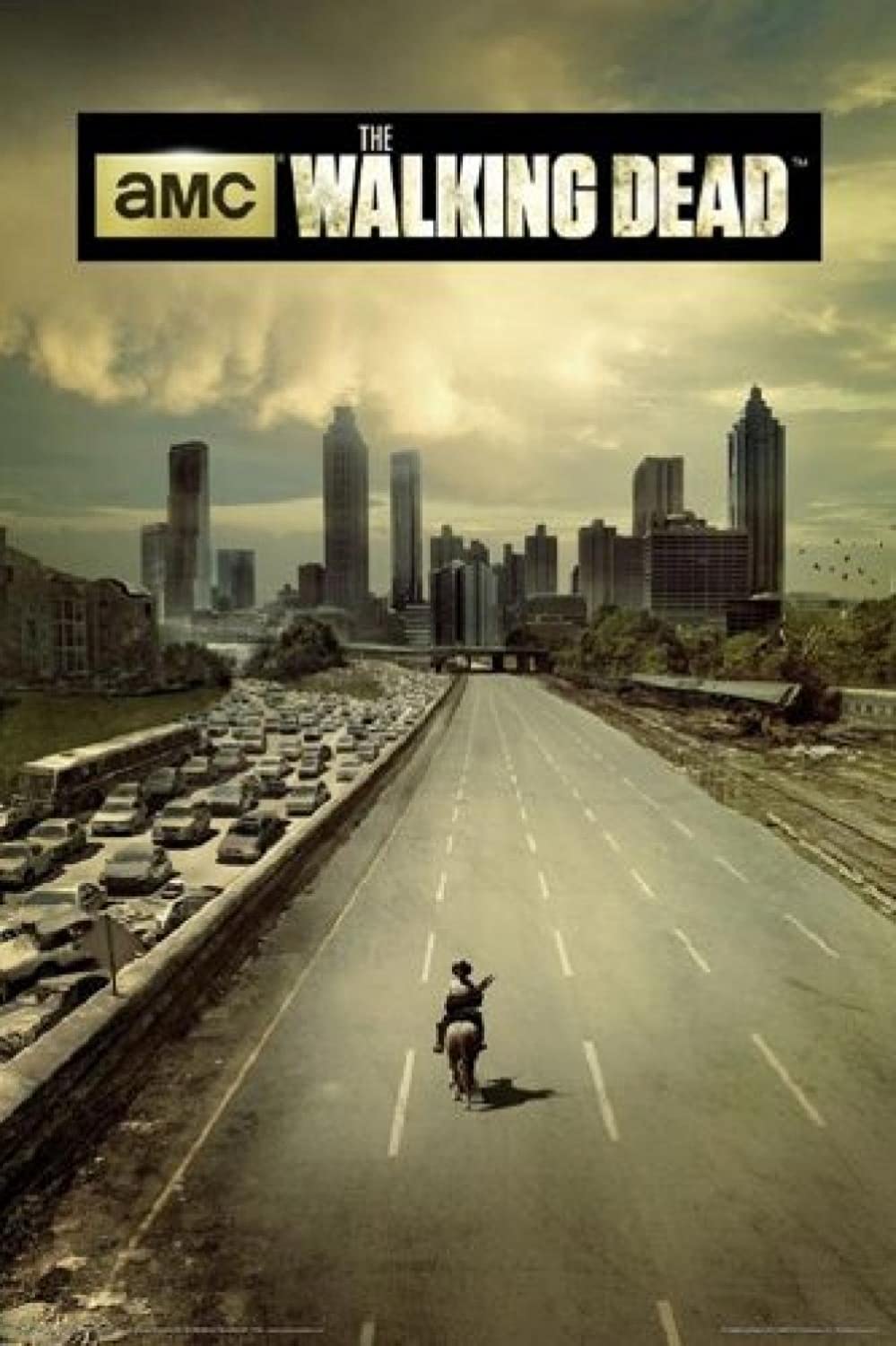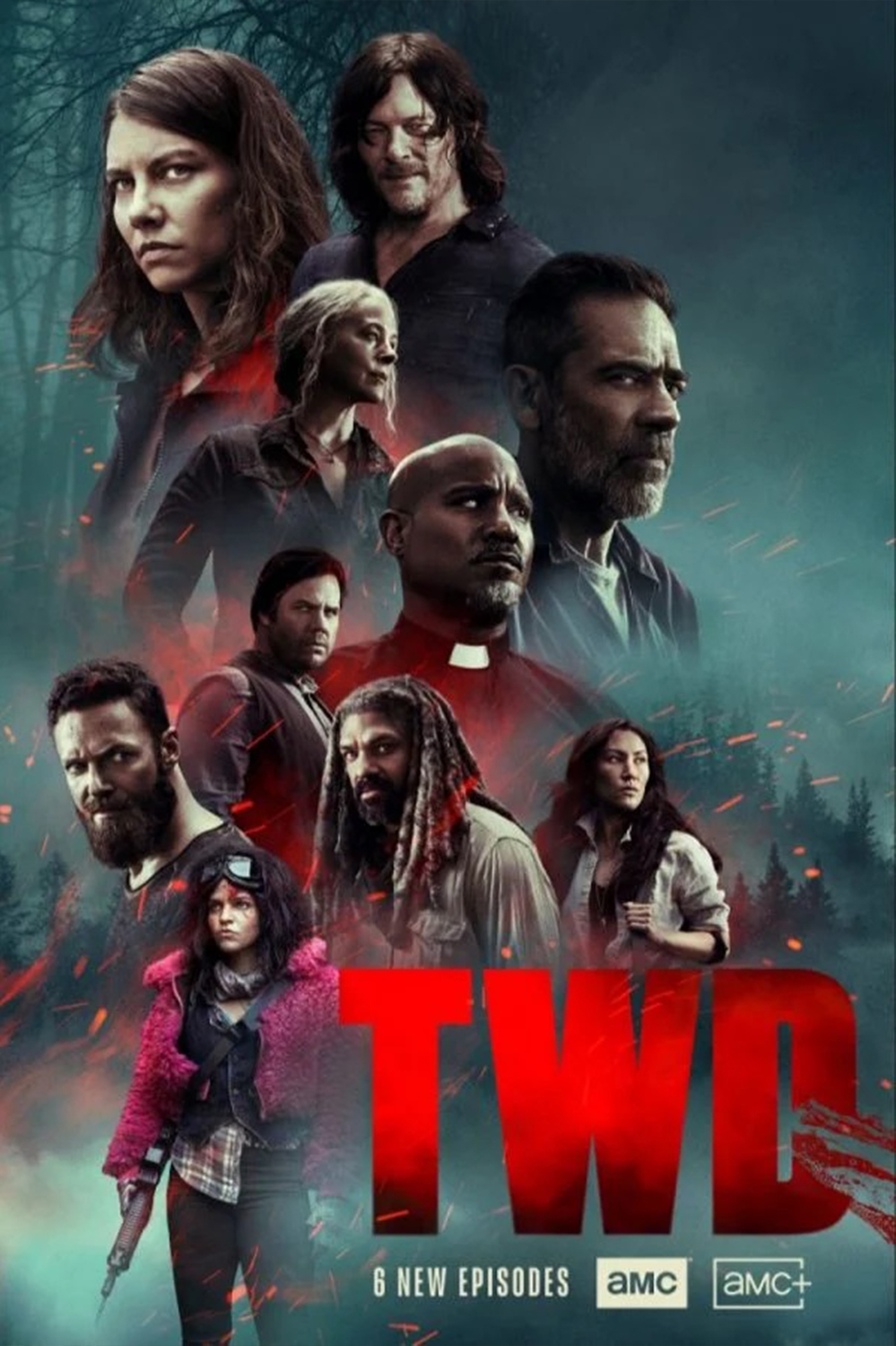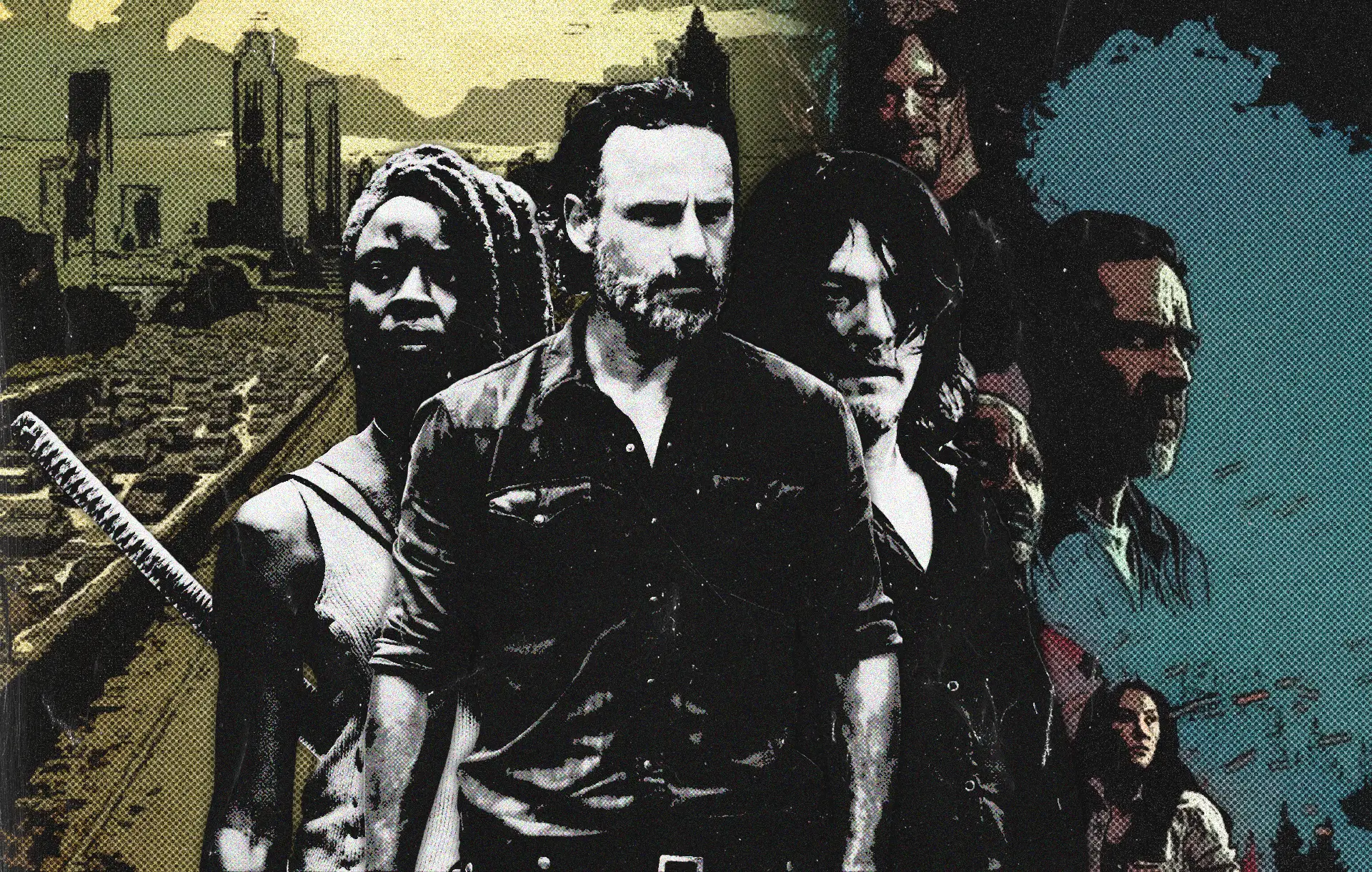* Slight spoilers ahead *
Imagine this: a ship goes out to sea on a long journey. Everyday a piece of the ship is replaced with a new piece. Day after day the crew replaces every floorboard, window, and each individual part of the ship, until they reach land and nothing original remains. Do the passengers arrive in the same boat they left in?
This is a philosophical question called the Ship of Theseus. It’s a metaphor for identity, or so I learned as a freshman in Intro to Philosophy. It’s meant to evoke the same questions about yourself. Of course you’re able to say you’re a different person now than you were as a toddler, but when did you change into a “new person?” Every day you grow, learn, make mistakes, and it changes who you are, but it gets more abstract when you try to determine the exact moment of transformation.
I’m reminded of the Ship of Theseus and my freshman philosophy course because The Walking Dead is going into its final season. Oh, and it was also used recently in WandaVision, but that’s not the show we’re talking about.
The Beginning of the End
In anticipation of the final season beginning production, The Walking Dead is premiering six bonus episodes of Season 10. I want to reflect on the show’s journey to this point, looking at characters lost and gained, character development, increased representation in casting, and the overall beauty of a long-running show.
Turning on AMC’s The Walking Dead on Sundays in 2010 when Season 1 first aired felt like you were back in 2003 when it takes place. Only it was some strange, zombie apocalypse 2003. I’m usually not one to seek out horror shows, but I binged the first season and got hooked on the character drama, 2003-nostalgia aesthetic and fear for the zombie apocalypse.
The Walking Dead Sundays now feels like another sign of the times. A noticeable difference in the final 30 episodes will be the type of film used. Opposed to using 16mm film to achieve a grainy, classic horror look, the show will be shot digitally for the first time as a COVID-19 protective measure for cast and crew.
It’s difficult to keep up with all that’s changing in the real world, let alone in The Walking Dead universe; however, thinking about change in terms of the Ship of Theseus makes it easier, if not a bit poetic. Is the show the same as when fans first started watching? I believe the answer is as complicated and mysterious as philosophers predicted.
Reflecting & Learning
In the beginning, the original survivors were learning the workings of their new world while learning about themselves and who they were going to be in a post-apocalypse. Each episode was more about moral and ethical dilemmas facing Rick and the group in the midst of zombies roaming the earth. As the show progressed, episodes became more about character relationships and development while continuing to navigate the world of the dead.
Looking back at the Season 1 ensemble cast, while iconic, it’s constructed with some obvious, problematic stereotypes. For example, women are rarely seen with guns for protection, so they rely on the men.
The two pre-apocalypse sheriffs, Rick Grimes and Shane Walsh (Andrew Lincoln & Jon Bernthal), hoard the guns and control who gets access and training. It isn’t until Season 3 when Michonne (Danai Gurira) rescues Andrea (Laurie Holden) that The Walking Dead showcases a storyline of fully-capable women.

Or, when Daryl Dixion (Normal Reedus) tells Glenn (Steven Yeun): ”You’ve got some balls for a Chinaman.”
Glen replies, “I’m Korean.”
Daryl: “Whatever.”
As I make reference to this offensive comment, it’s important to acknowledge the increase in Asian American hate crimes. The frequent attacks have been attributed to racist language used by Donald J. Trump in regards to the coronavirus, according to this article by Alexandra Petri and Daniel Slotnik for The New York Times.
As a long-running show with two spinoff series and two on the way, The Walking Dead franchise has great influence over their wide audience. It’s important to reflect on the past, to learn and move forward in all of life and with influential TV shows.
Moving Forward
With only two remaining characters from Season 1, it seems like The Walking Dead is not the show it began as. It’s changed so many boards of the metaphorical ship.
It’s moved beyond the stereotypes that structured the early seasons, with a more diverse, less stereotypical cast. The show features representation of the LGBTQ+ community, differently-abled individuals, Deaf persons, and several inter-racial couples (Rick & Michonne, Glenn & Maggie, Carol & Ezekiel, etc.).
I’ve grown to appreciate long running series for the immense room for authentic character development. Take Daryl who is depicted as a redneck hick with a selfish, survival-of-the-fittest philosophy when he’s introduced in Season 1. He’s now one of the group’s primary leaders, and he shows such compassion when it’s hardest to empathize.
For example, the way Daryl defends and protects Lydia (Cassady McClincy), Alpha’s daughter and former Whisperer in Season 10, exemplifies how far he’s come with embracing not only his found family, but strangers. It will be interesting to see how he changes in the last season and in his upcoming spinoff.


Replacing the Final Piece
I’ll admit, I’ve struggled to watch some of the later seasons. I stayed loyal when favorite characters left or died, but the biggest hurdle for me was Rick Grimes’s departure at the end of Season 8.
Losing the show’s leading man felt like replacing the final board in the Ship of Theseus. I wondered how the show could even continue without Rick, who’s long been the vessel for The Walking Dead’s theme of perpetual hope. But the show did continue without Rick, proving yet again that there has to be something to come after destruction and heartbreak. With an absolute tenacity, the magic of The Walking Dead is in its deeply rooted theme of hope and resilience.
So now, after finishing Season 10 and thinking about the upcoming final season, asking myself if this is the same show I fell in love with, I’d say yes and no. It’s not the same show that aired in 2010 in many ways, but it’s become something better. With every lost character, cast mate, and all the little changes along the way, it evolved into something more itself. More walkers, more characters, more death, destruction and heartbreak, but there is always something to come after.
The world we know is gone. But keeping our humanity, that’s a choice.
Dale in TWD Season 2, Episode 11 – “Judge, Jury Executioner”




